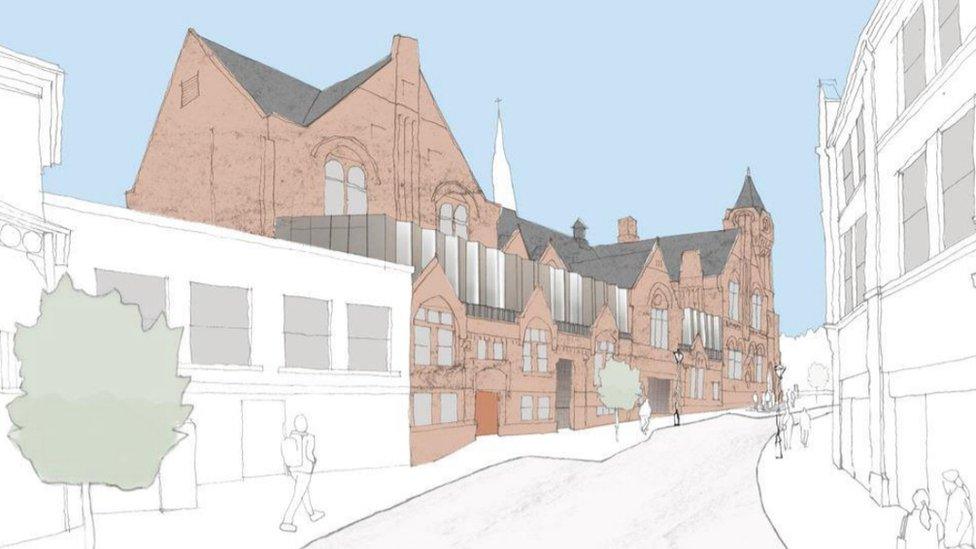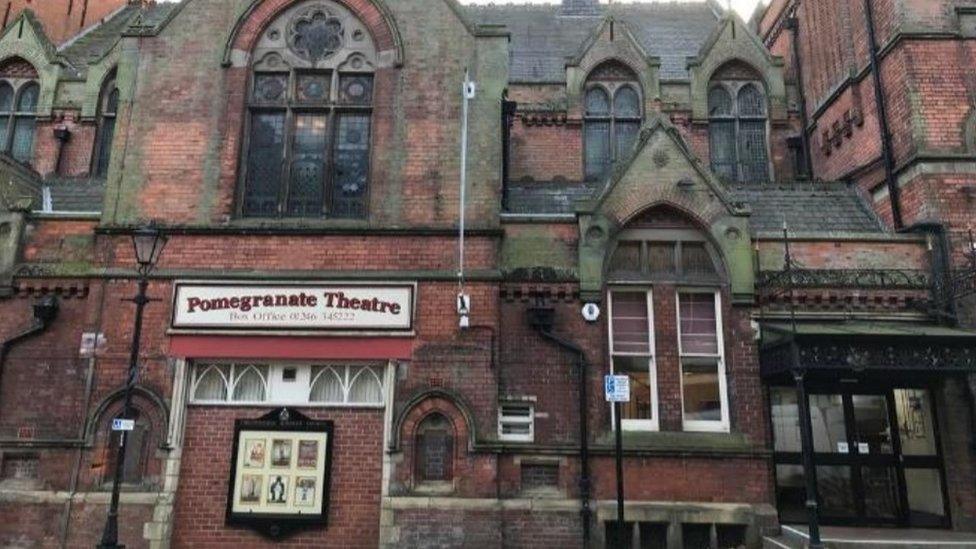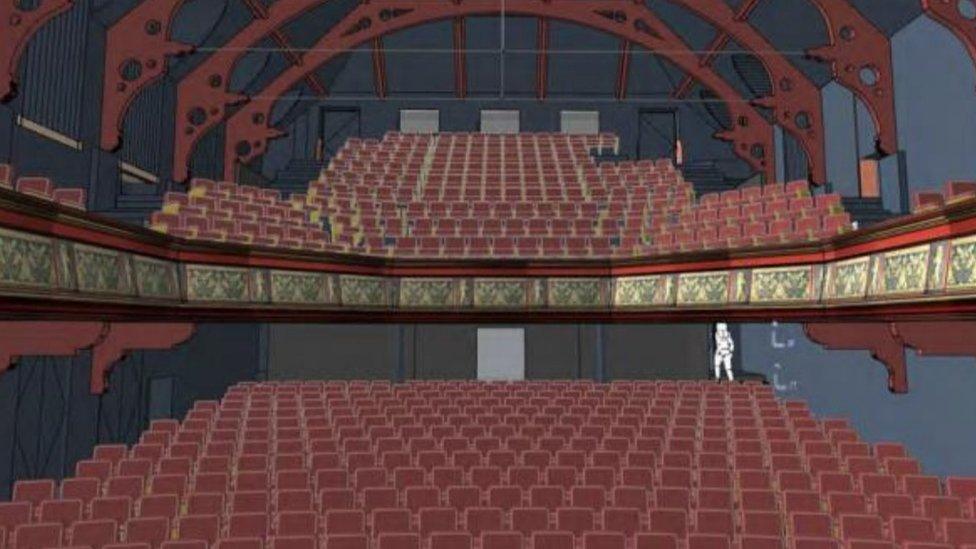Chesterfield: Stephenson Memorial Hall to close for £17m revamp
- Published

An artist's impression of Stephenson Memorial Hall in Corporation Street
Plans for a £17m revamp of a Grade II-listed building in Derbyshire have been given the go-ahead by councillors.
Stephenson Memorial Hall, in St Mary's Gate, Chesterfield - which houses the Pomegranate Theatre and Chesterfield Museum - will close for two years.
The borough council said the hall would be renovated and extended, while retaining original features.
It said work would include a single entrance to the attractions and help improve accessibility and comfort.
This project is part of the council's revitalisation plans for the town centre and is being paid for in part with £11m from its £20m from the government's Levelling-Up Fund.

It was built in 1879
On Monday, Chesterfield Borough Council's planning committee approved the plans to restore the building, which was built in 1879.
In the meeting attended by the Local Democracy Reporting Service, cultural services manager Anthony Radford said it was a "humungous investment" for the council.
"It's got to be a stunning success," he said.
"The building is going to be closed for over two years and therefore the expectation of this building is phenomenal."

Changes will allow 95% of the hall to be accessible to wheelchair users, the Local Democracy Reporting Service reports
The plans include using the original doors, and the door currently used to access the museum being returned to its original function as a window.
Upon entry to the hall, visitors will be met with a set of stairs and elevator, which will take them up to a foyer area featuring a cafe from where the theatre and museum can be accessed.
The council said the plans allowed 95% of the hall to be accessible to wheelchair users, as opposed to 43%.
However, speaker Janet Murphy argued the wheelchair turning circle was inadequate for certain users.
In response, architect Simon Maddy said the turning circle met standard British requirements.

Follow BBC East Midlands on Facebook, external, Twitter, external, or Instagram, external. Send your story ideas to eastmidsnews@bbc.co.uk, external.